Published Jan 19, 2022
Into The Arena: Exploring the Metron’s Perception of Humanity
How does Kirk's encounter with the Gorn connect to his other adventures?
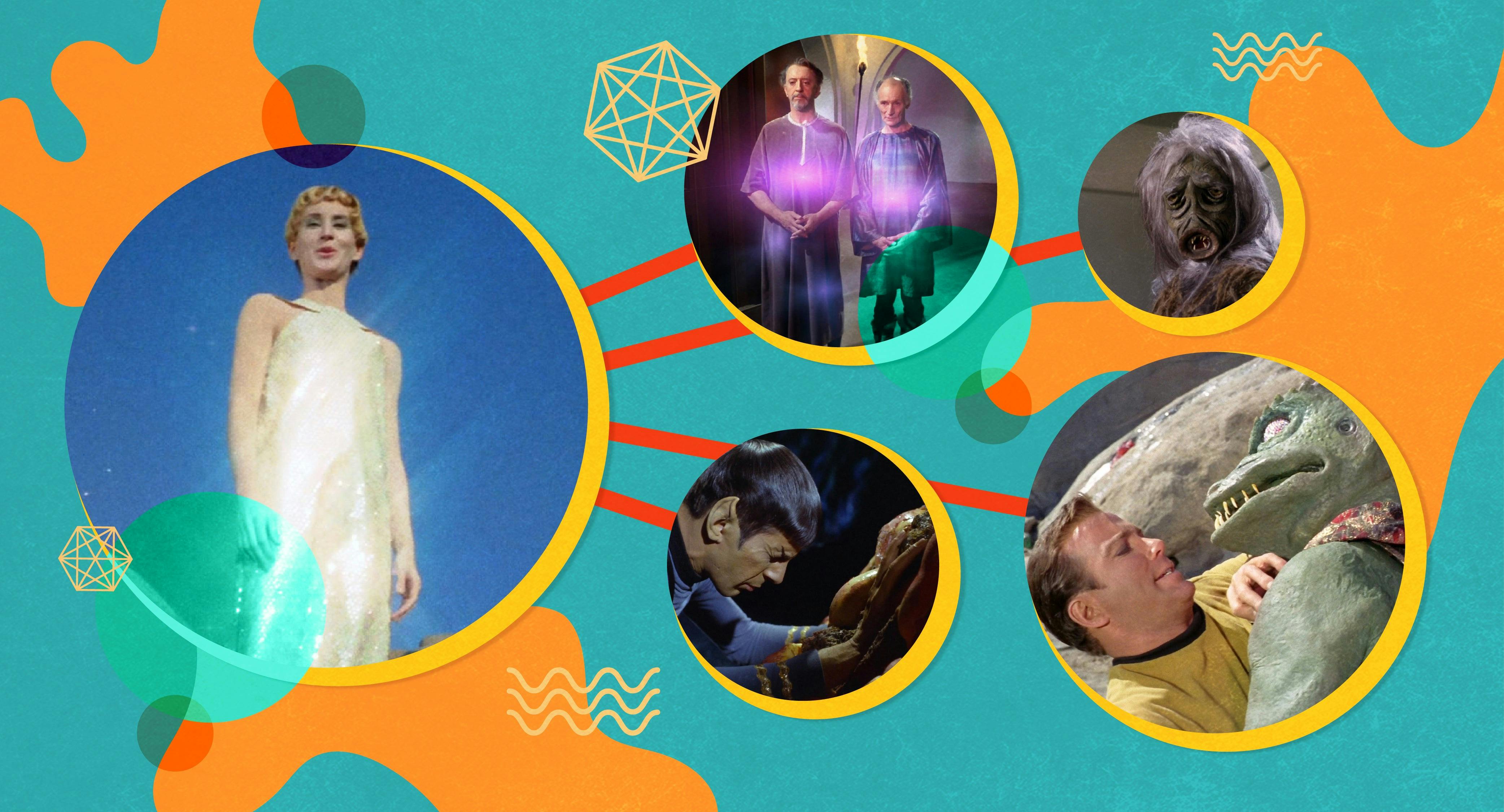
StarTrek.com
The magnificent Star Trek: The Original Series episode “Arena” found Captain James T. Kirk and his Gorn counterpart fighting to the death over what proved to be an unfortunate territorial misunderstanding between the two cultures. Kirk showed mercy after vanquishing his foe, an act that impressed the Metron who observed the battle. Stating that there might be hope for Kirk’s kind, the Metron nevertheless highlighted their belief that humanity had much to learn before it could be classified as fully civilized. While we typically view the Federation as an advanced society, just how accurate was the Metron’s assessment? Let’s examine this question by comparing Kirk’s “Arena” exploits with his deeds in the TOS episodes “The Man Trap,” “The Devil in the Dark,” and “Errand of Mercy.”
Searching for the Salt Creature
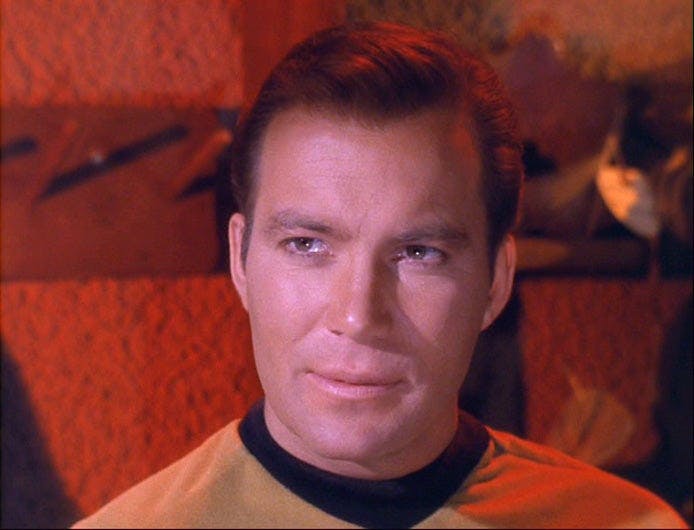
StarTrek.com
Set prior to the meeting with the Metron in “Arena,” the U.S.S. Enterprise’s visit to planet M-113 in “The Man Trap” featured an encounter with the last remaining member of a species that required significant quantities of salt to survive. The shape-shifting creature managed to absorb sodium chloride directly from several Enterprise crewmen, ultimately killing its victims in the process. Once Kirk grasped the truth of the situation, he assembled a briefing to devise a plan to foil the creature. Spock mentioned that salt had been set out as bait, but Dr. McCoy suggested that they offer the alien salt without trickery. Robert Crater took things a step further, as he stressed that the creature displayed intelligence and a desire for love.
Despite these valid arguments from McCoy and Crater, Kirk dismissed their advocacy with a harsh accusation. “You bleed too much, Crater,” the captain proclaimed to the professor. “You’re too pure and noble.” Kirk’s decision to avoid seeking out a peaceful resolution eventually prompted a showdown with the creature from planet M-113. As the alien attempted to extract salt from Kirk, Dr. McCoy reluctantly used a phaser to execute the creature. In addition to ending a sentient lifeform’s existence, McCoy was also forced to deal with the fact that the alien had assumed the appearance of his former lover Nancy Crater during the scrape.
Kirk’s cruel reaction to the friendly approach proposed by McCoy and Crater spelled doom for the salt creature and underlined the Metron’s belief that humanity still needed to evolve. Rather than supply the endangered alien with a readily available compound and practice diplomacy, the captain placed the creature into a proverbial corner. However, after seeing McCoy’s response to the alien’s death, Kirk did appear to reflect on the situation and experience some level of regret. Perhaps this represented the potential that the Metron would go on to recognize in humanity?
Engaging the Gorn
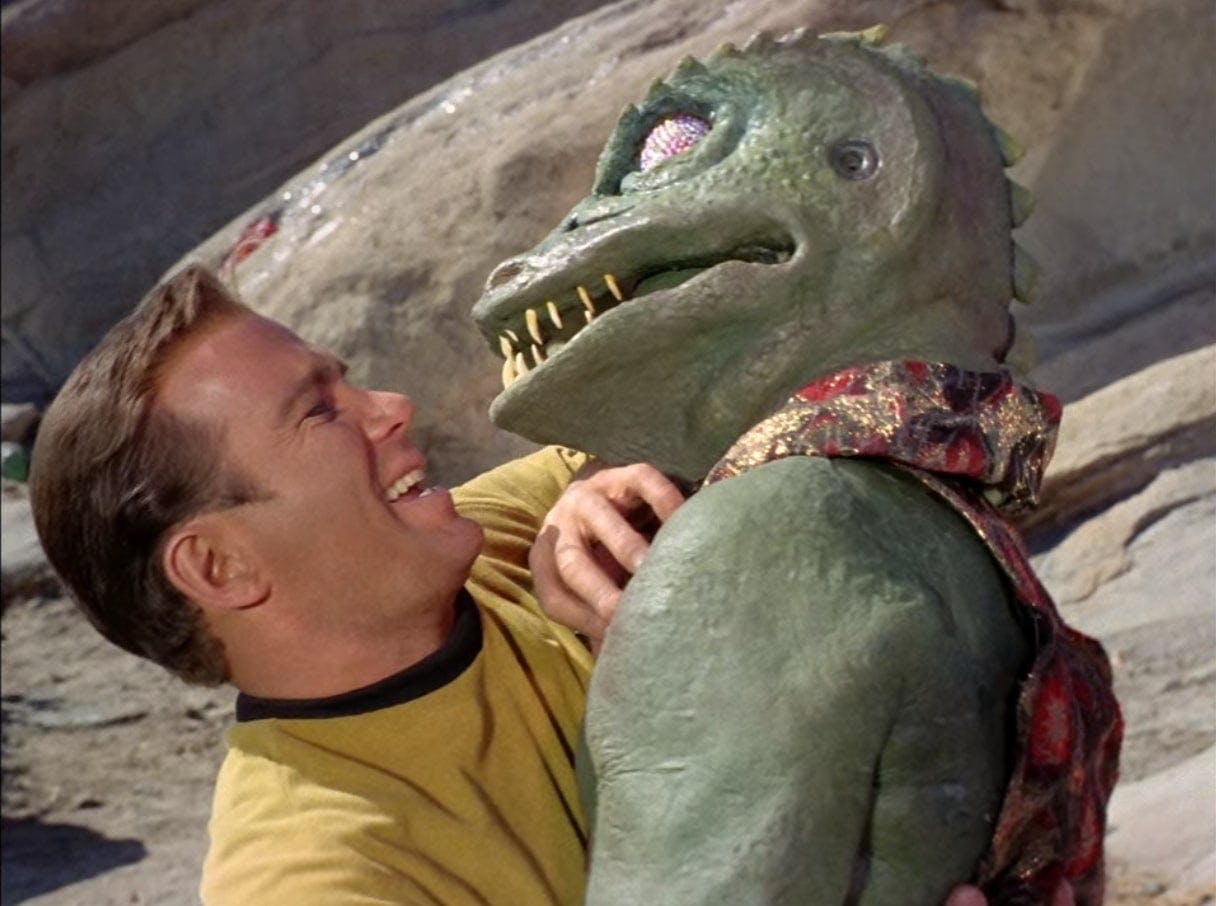
StarTrek.com
When the Enterprise discovered the massacre at the Federation outpost on Cestus III in “Arena,” Kirk felt an understandable level of anger toward the Gorn that had perpetrated the crime. The Enterprise’s pursuit of the Gorn vessel served as the catalyst that sparked the Metron’s involvement, as the powerful being transported Kirk and the Gorn captain to a barren planet for their deadly showdown. The Enterprise’s commanding officer accused the Gorn of an atrocity, while the Gorn claimed the Federation had intruded upon their territory. The pair grappled with each other across the terrain until Kirk attained the upper hand when he found the components to construct a rudimentary cannon and wounded the Gorn.
Ready to deal a lethal blow upon his enemy, the Starfleet captain paused to consider the Gorn’s perspective and elected to spare the alien’s life. This choice represented significant progress for Kirk in comparison to his struggle against the salt creature, particularly as the Metron permitted both the Gorn and Federation starships to depart unharmed. Kirk’s compassion for the Gorn stood in contrast to the lack of empathy he had previously displayed at M-113. To what extent had the captain changed?
Dealing with the Devil
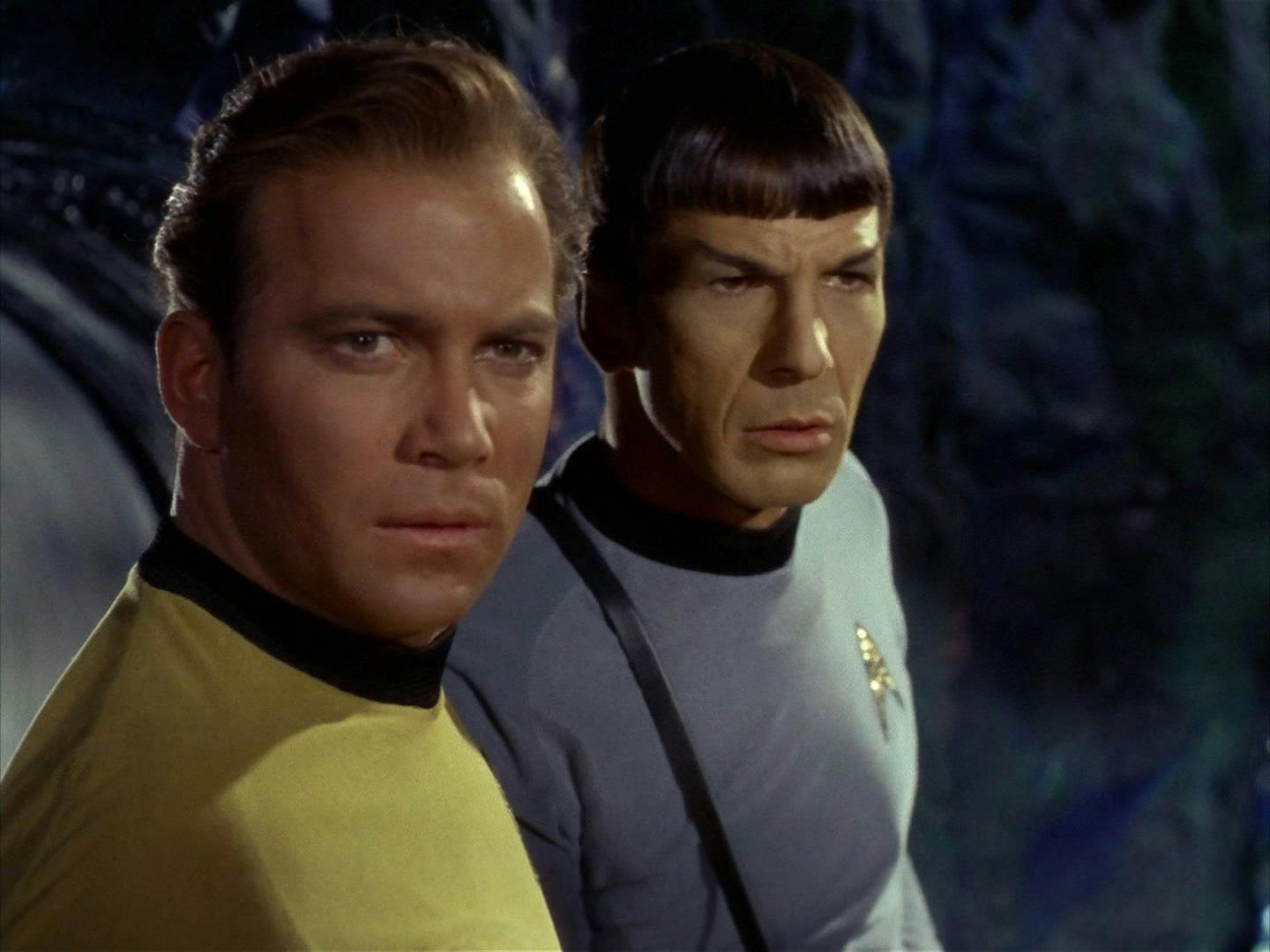
StarTrek.com
Sometime after “Arena,” the Enterprise came across a lifeform that was killing Federation miners in “The Devil in the Dark.” As was the case with the salt creature, Kirk initially perceived the being as a “monster,” setting up a hunt and ordering his security officers to attack it on sight with phasers set on maximum. When Spock discovered that the alien might be the last of its kind, Kirk asserted that they must defeat the creature in yet another parallel to “The Man Trap.” However, when the captain cornered the lifeform, he considered Spock’s advice and encouraged his second-in-command to perform a mind-meld with it.
The gesture turned out to be a wise one, as the intelligent alien informed Spock that it had merely been protecting the eggs that would hatch to become the future of its species. Now known as a Horta, the sentient being allowed a truce to be established. The Horta and its offspring even agreed to co-exist with the miners and help them extract valuable minerals from the planet. Although Kirk’s first instinct trended toward vengeance, he opted to heed Spock’s advice and emphasized empathy over cruelty in his final standoff with the Horta. The peaceful resolution vastly improved upon the captain’s decisions in “The Man Trap,” so he must have taken the lesson from “Arena” to heart, right?
Clashing Against the Klingons
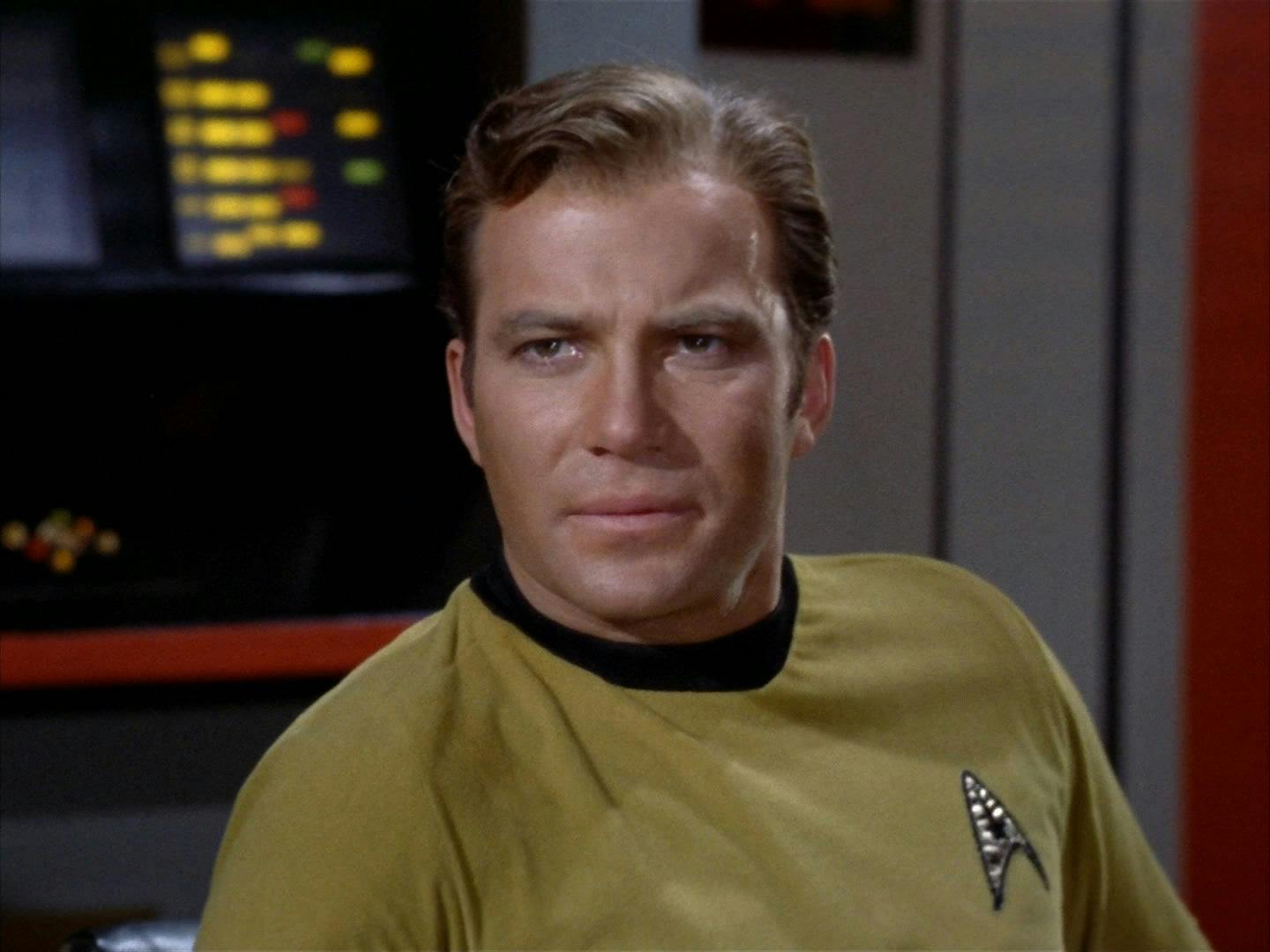
StarTrek.com
Unfortunately, Kirk’s ethics became clouded again in “Errand of Mercy,” an episode set soon after “The Devil in the Dark.” With the admirable goal of safeguarding the seemingly helpless Organians from a Klingon invasion at the forefront of his mind, the captain nonetheless repeatedly resisted the Organians’ pleas to avoid violence. In fact, Kirk went on to say that the Organians lacked courage and threatened them for not revealing where they had hidden his phaser. Forced to intercede out of a fear that the Federation and the Klingons would harm one another, the planet’s native inhabitants disclosed that they were powerful-yet-benevolent noncorporeal lifeforms.
As Kirk and his Klingon counterpart Kor protested the intervention, the Organian Ayelborne pointed to the ridiculous notion that the pair were trying to argue for a right to wage war. This reasoning put the Starfleet captain on his heels, and he later divulged to Spock that he felt embarrassed about his behavior on the planet. Regardless of the steps forward that he had taken in “Arena” and “The Devil in the Dark,” Kirk would have likely succumbed to his lesser instincts without the wisdom conveyed by the Organians.
Adapting to “Arena”
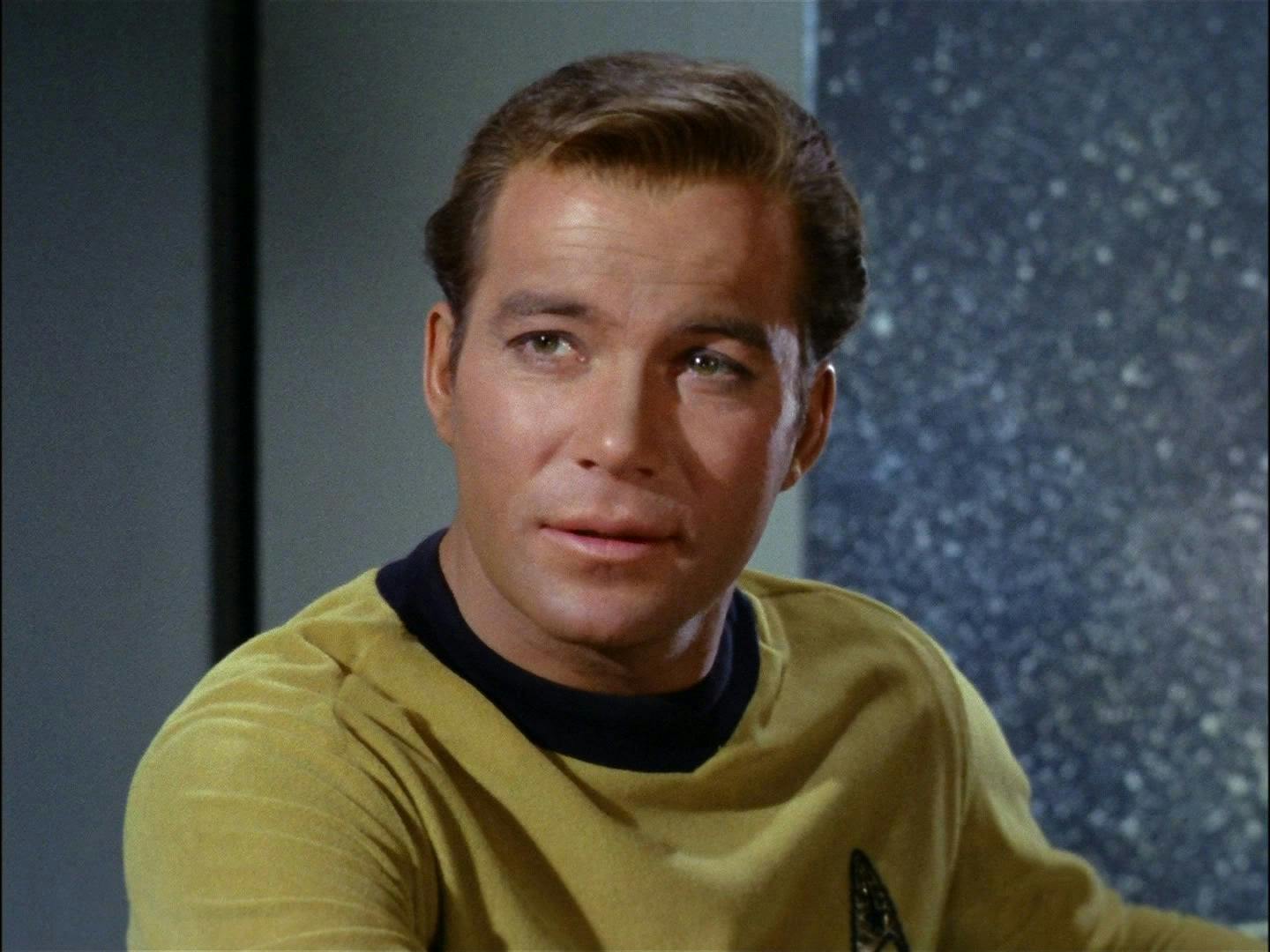
StarTrek.com
The Federation’s utopian lifestyle, advanced technology, and progressive views combine to portray a 23rd century society that is far more developed than the one in which we currently exist. Kirk and his Starfleet colleagues often present ideals that our own civilization can only aspire to attain, but that does not mean they do not have their flaws. Notwithstanding the headway Kirk made between “The Man Trap” and “Arena,” the captain moved forward with mixed results in his dealings with the Horta in “The Devil in the Dark” and the Klingons in “Errand of Mercy.” This context lends credence to the Metron’s perception of humanity, but let us not condemn Kirk or his comrades. Changing one’s ways is a difficult task, and the captain did display growth. One day, our species may yet attain the enlightenment that the Metron described and the Organians put into practice.
Jay Stobie (he/him) is a freelance writer who has contributed articles to the official Star Trek website and Star Trek Magazine, as well as to Star Wars Insider and the official Star Wars website. Jay also serves as a part-time assistant and consultant advising many actors and creatives who work on his favorite sci-fi shows and films. He can be found on Twitter and Instagram at @StobiesGalaxy.
